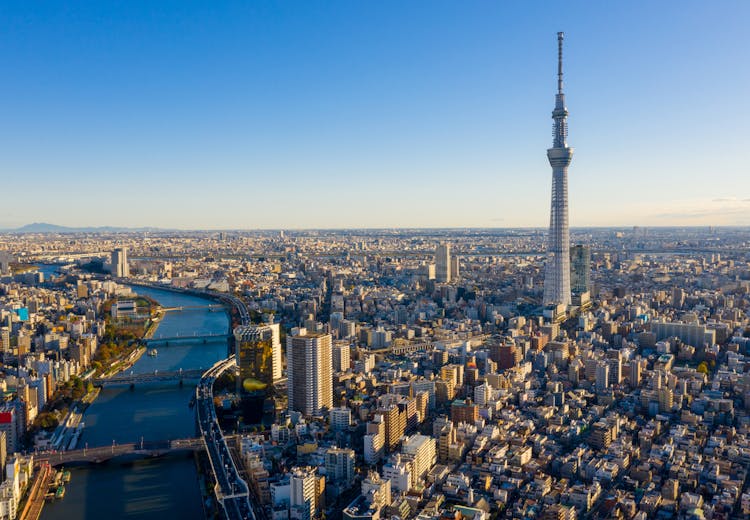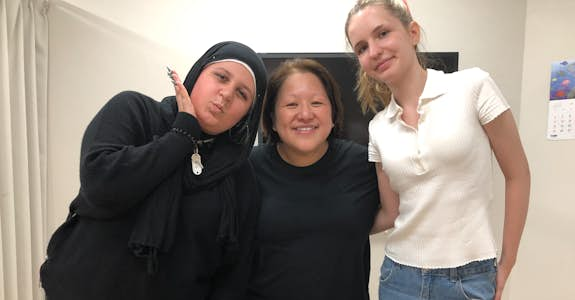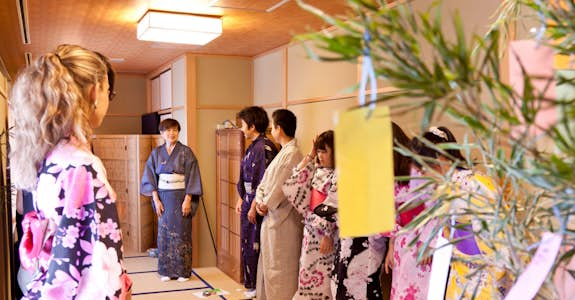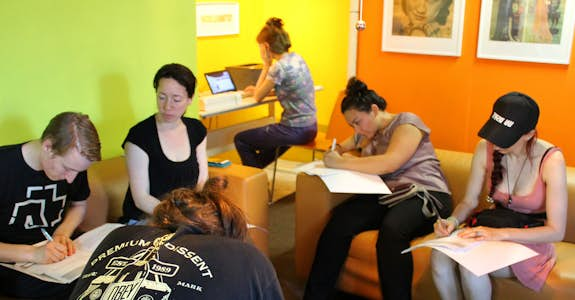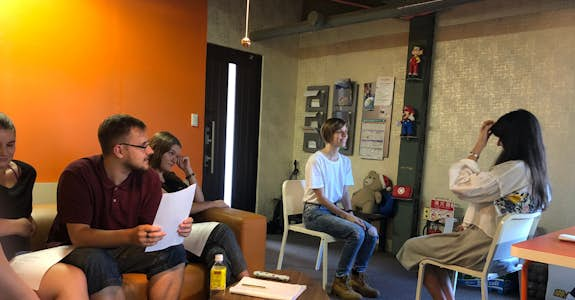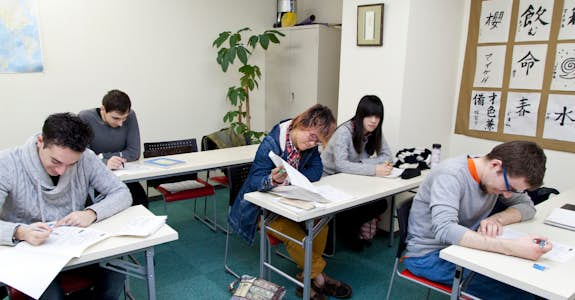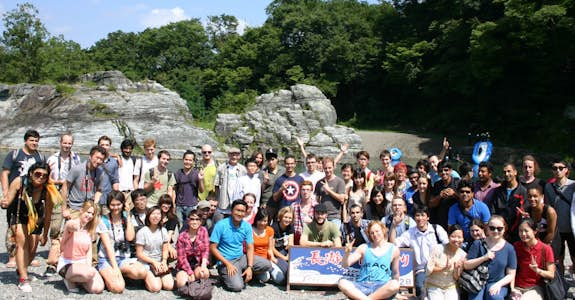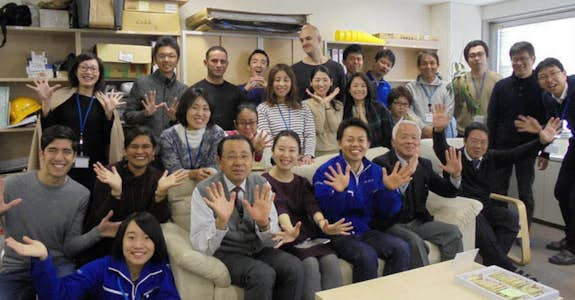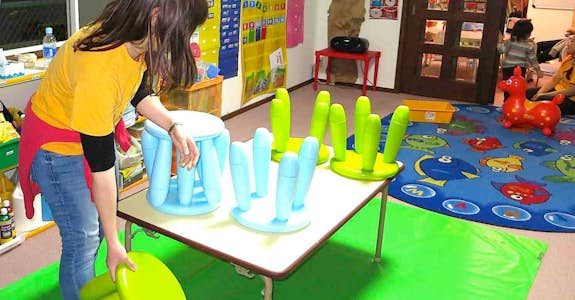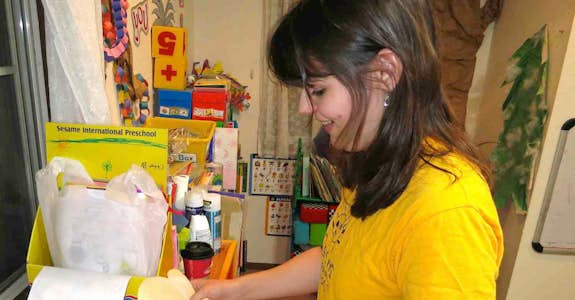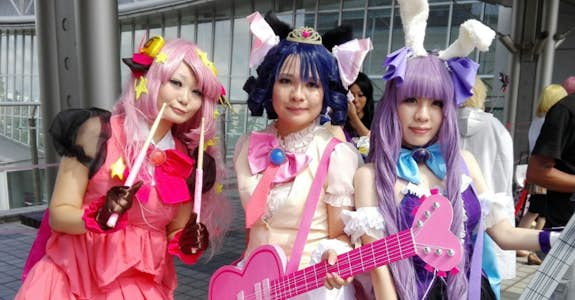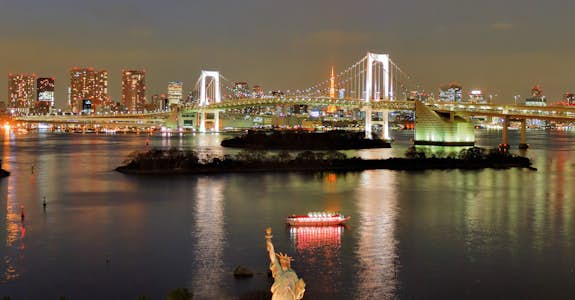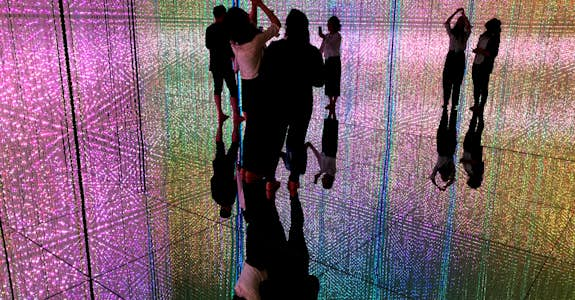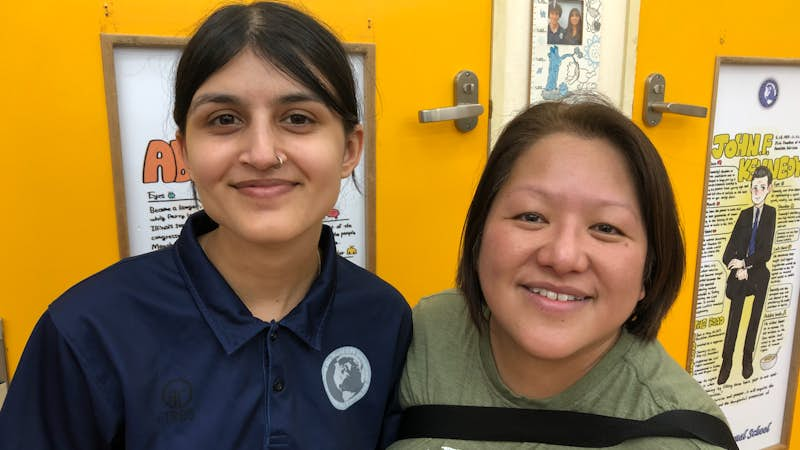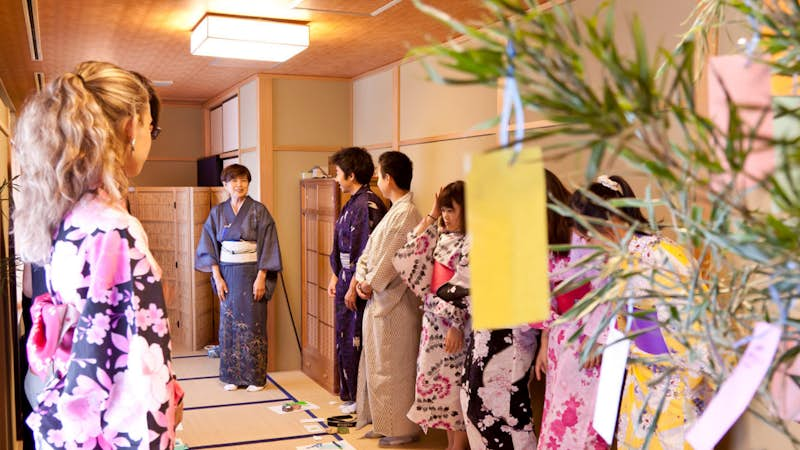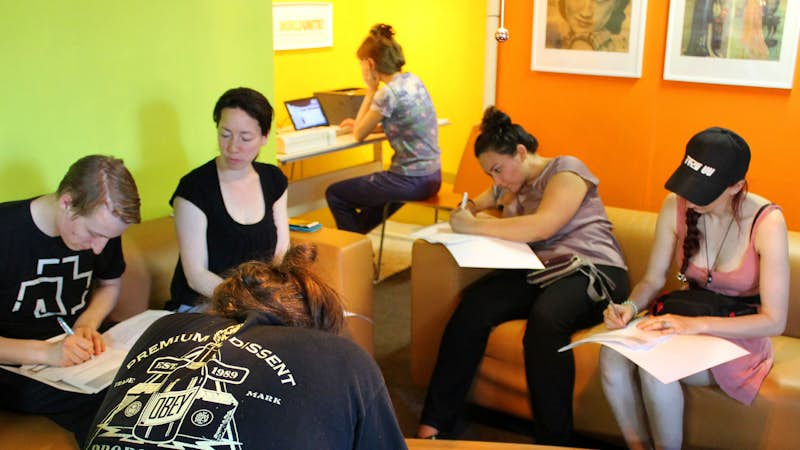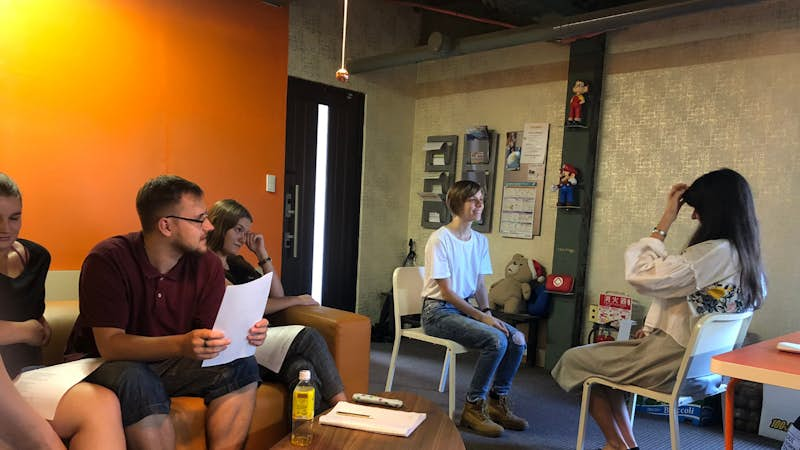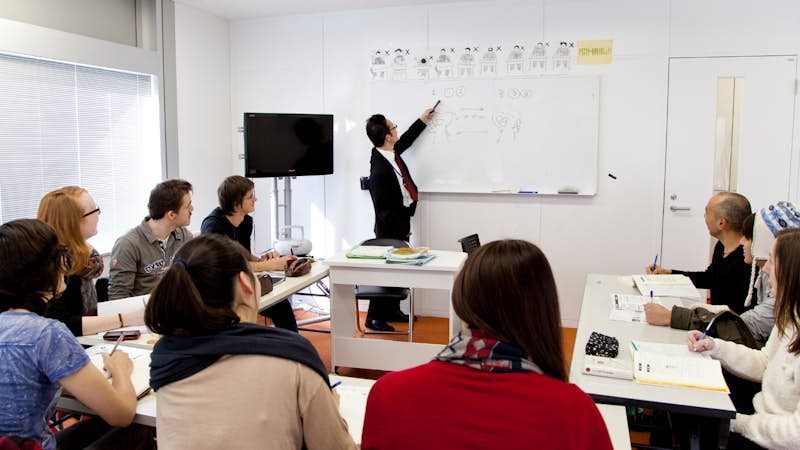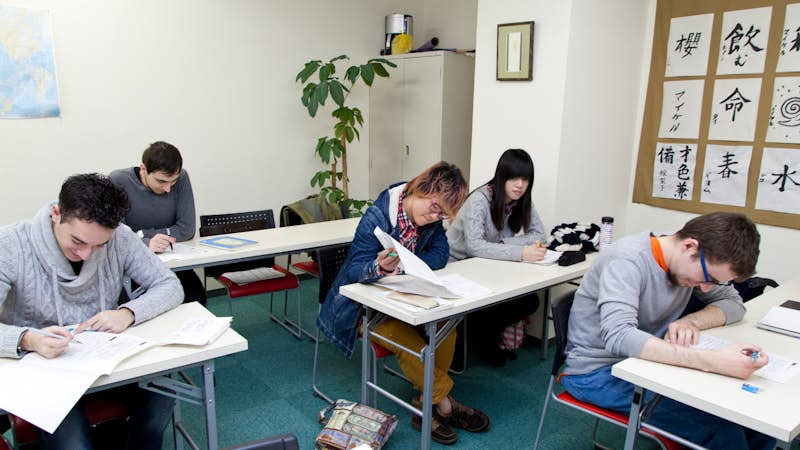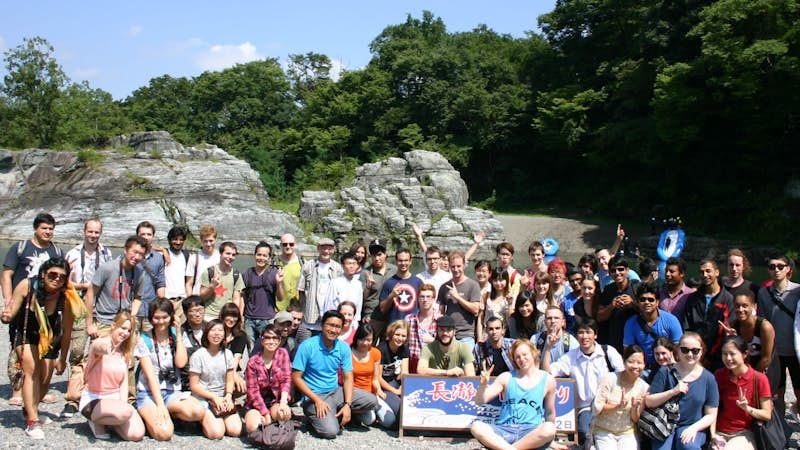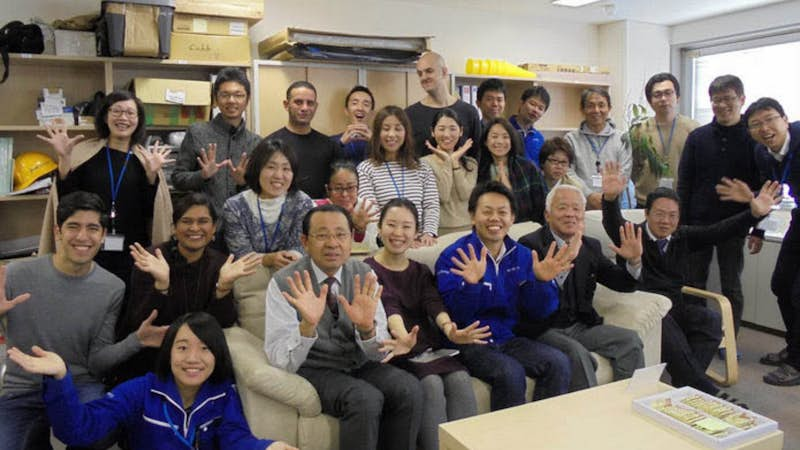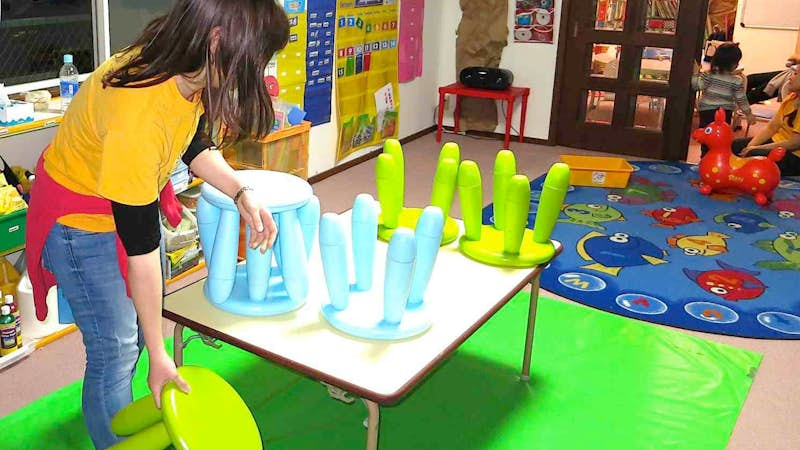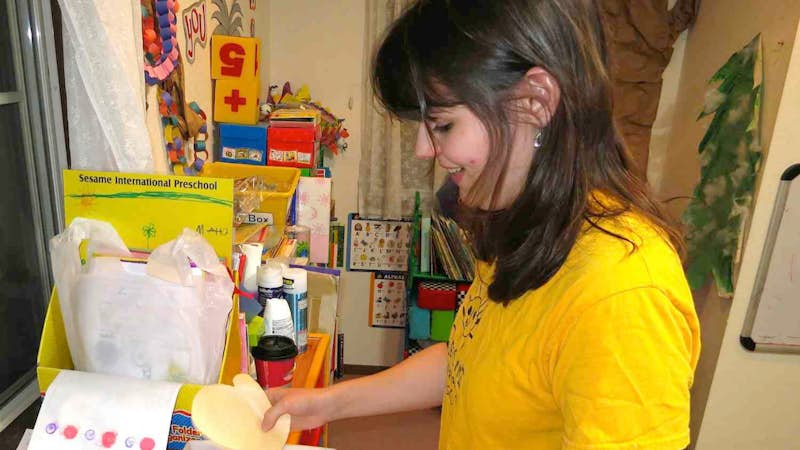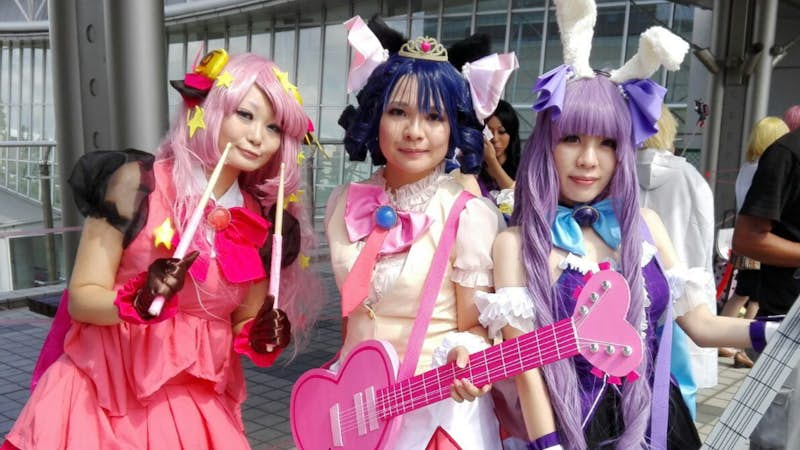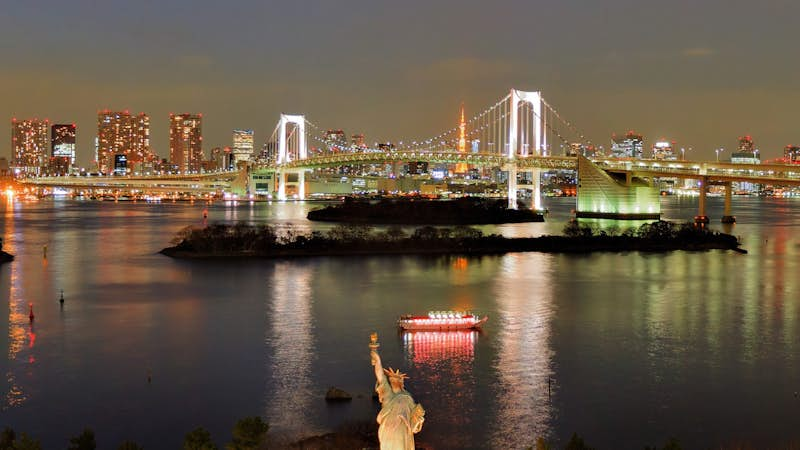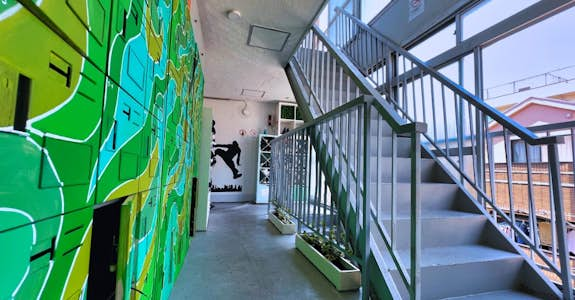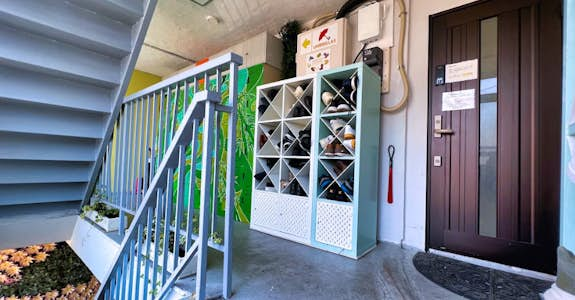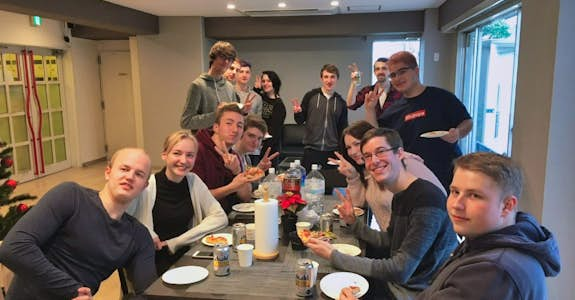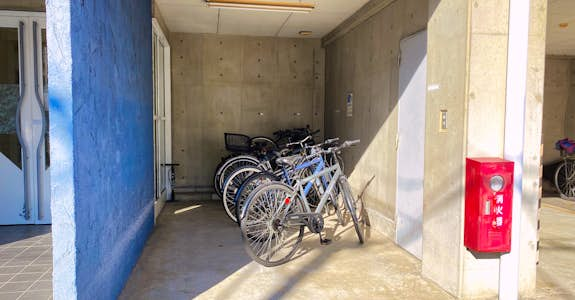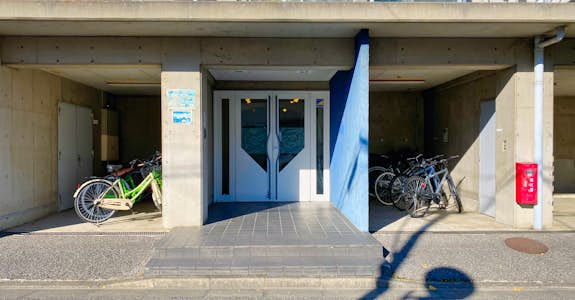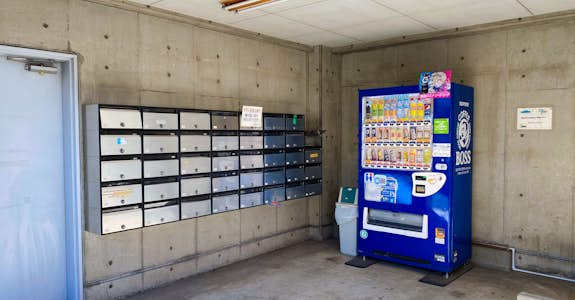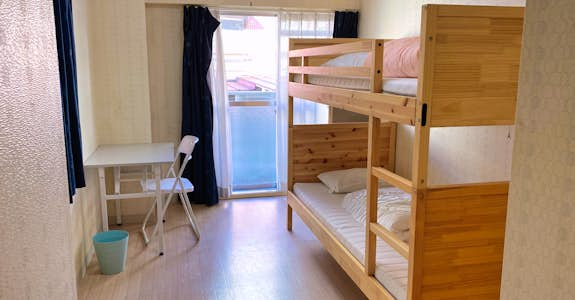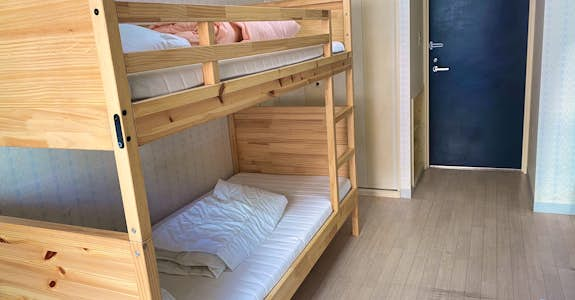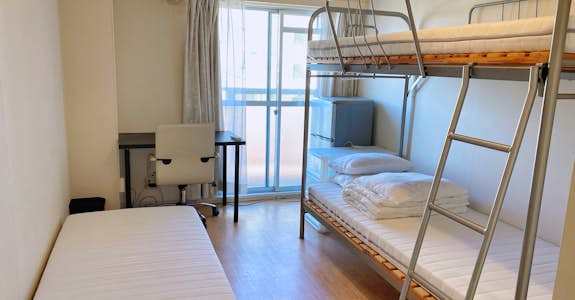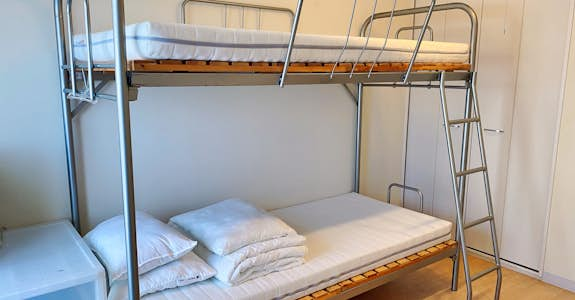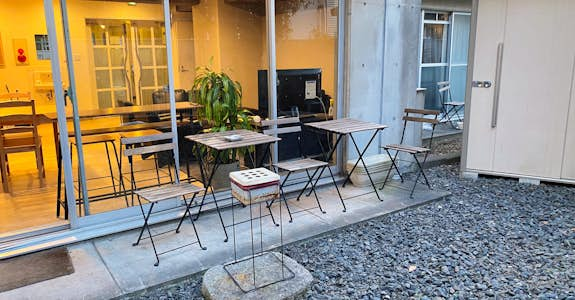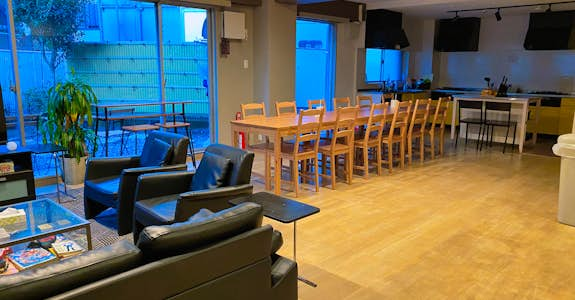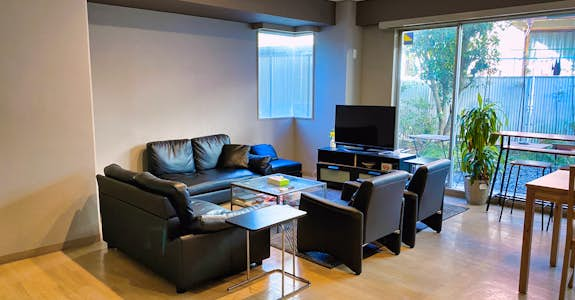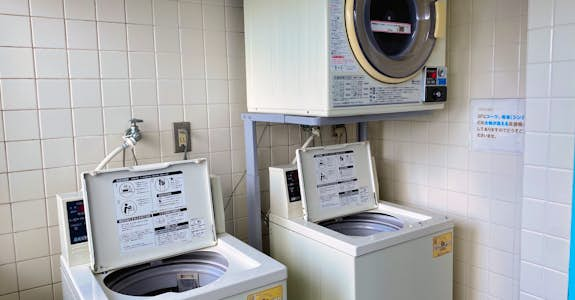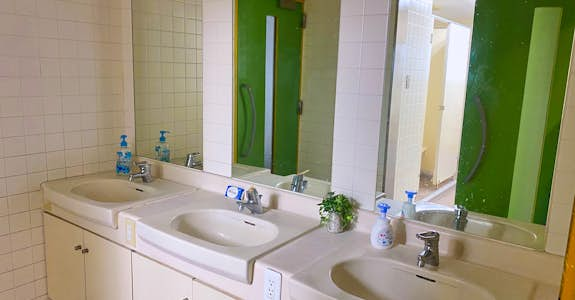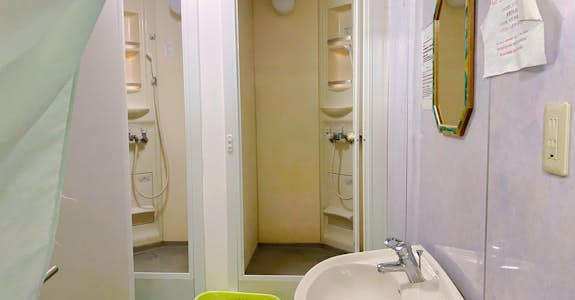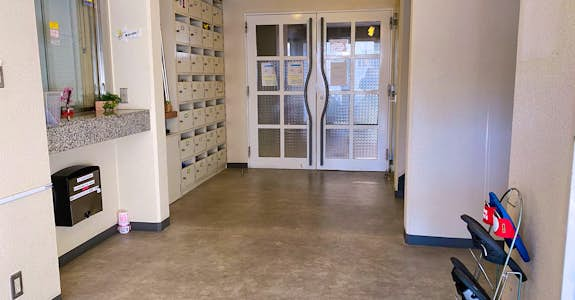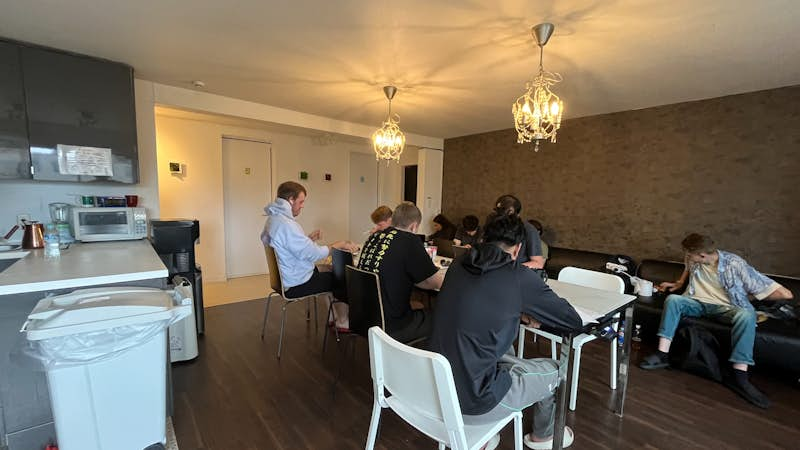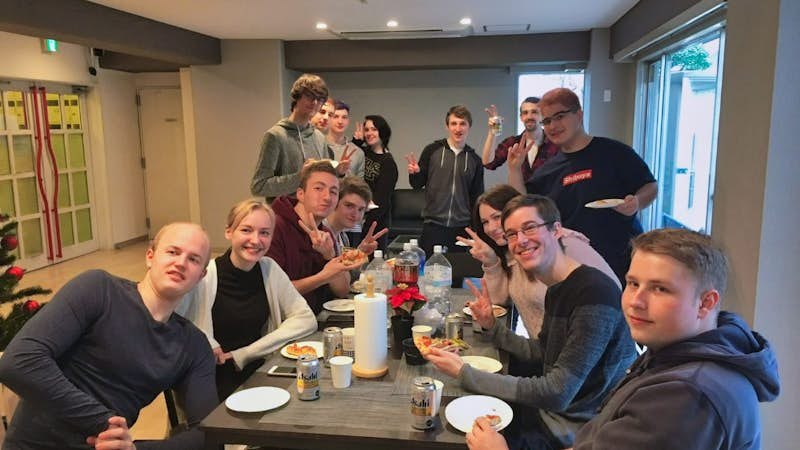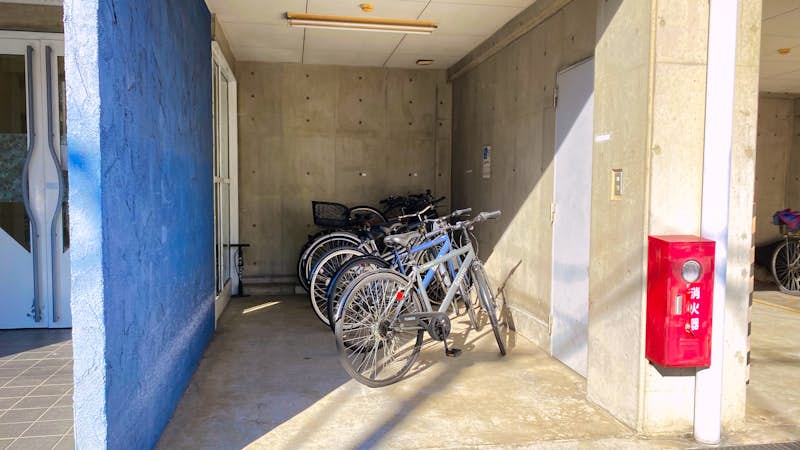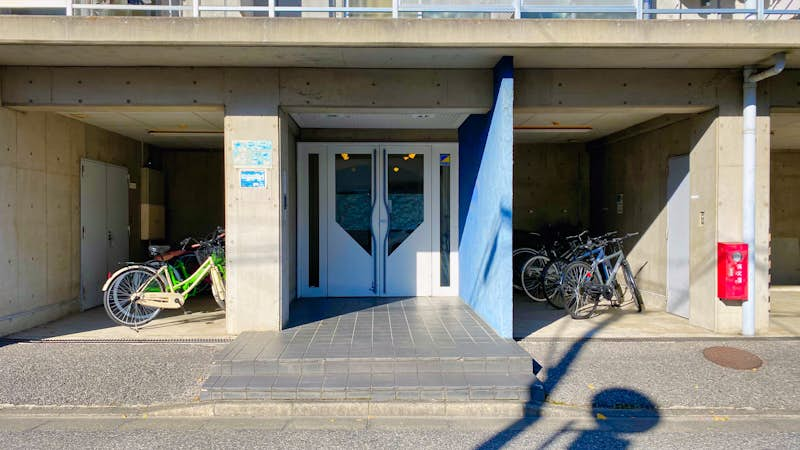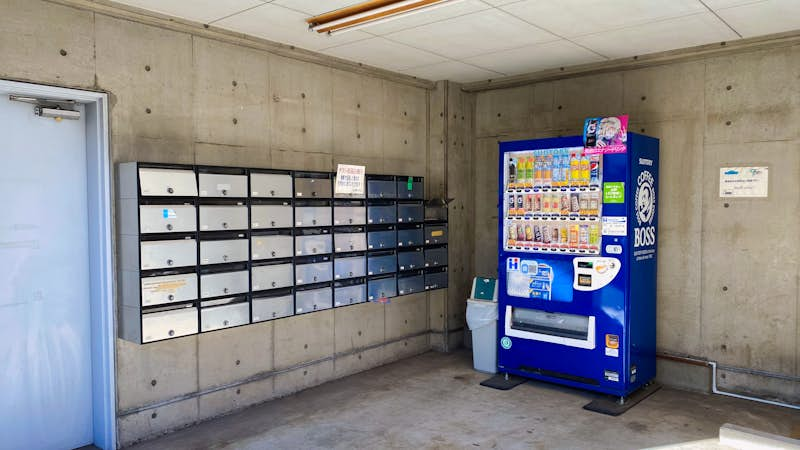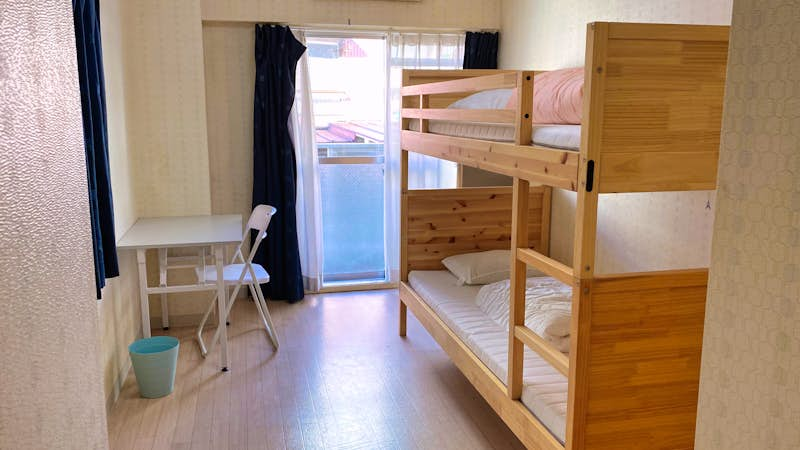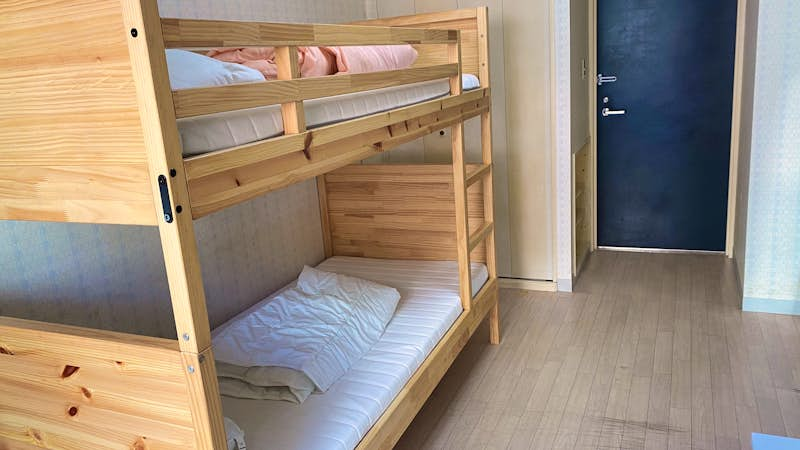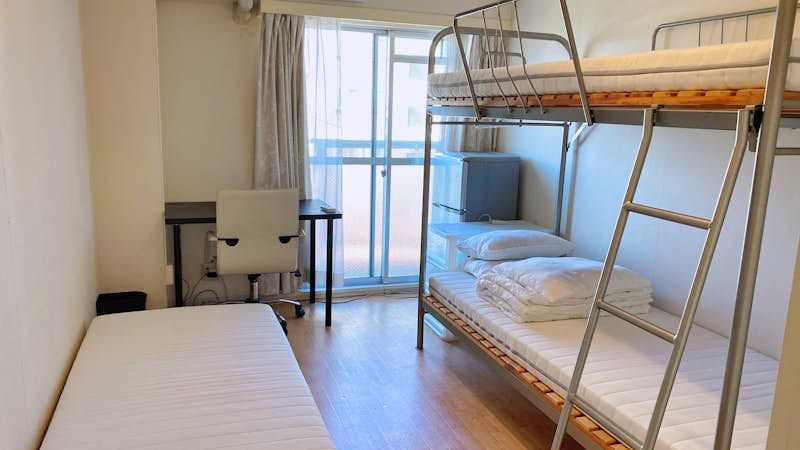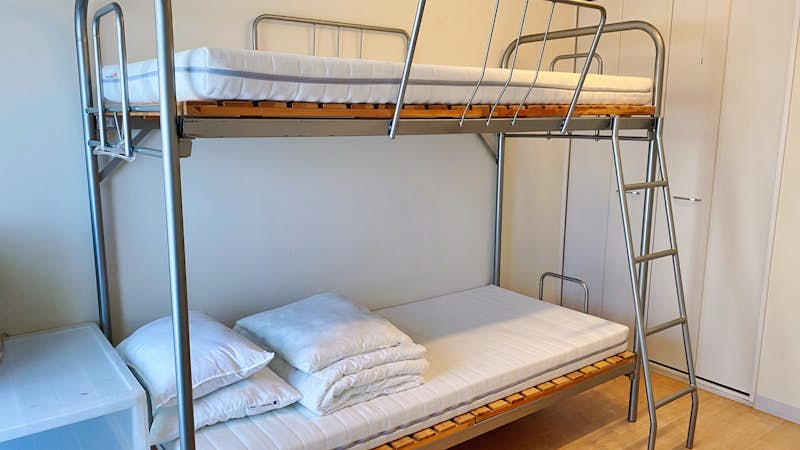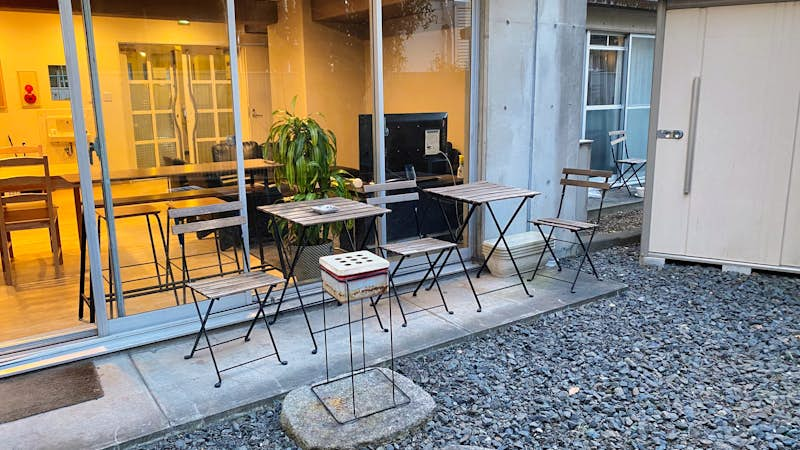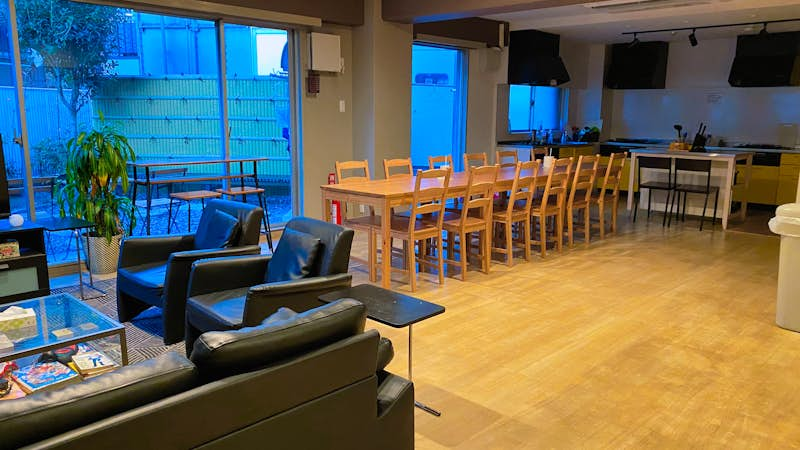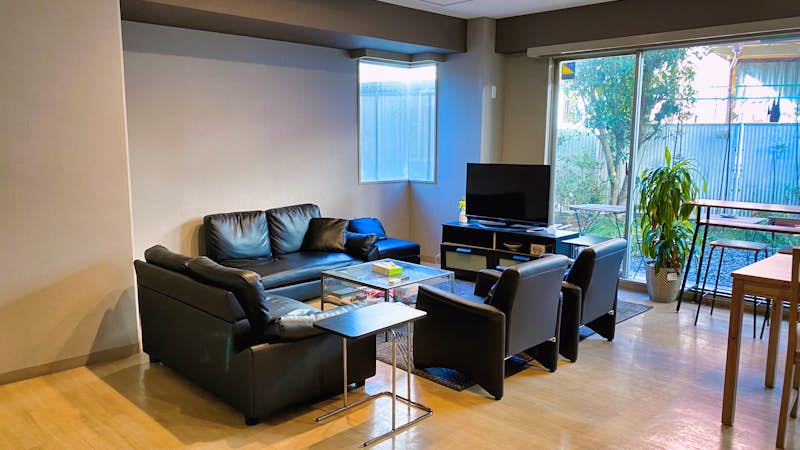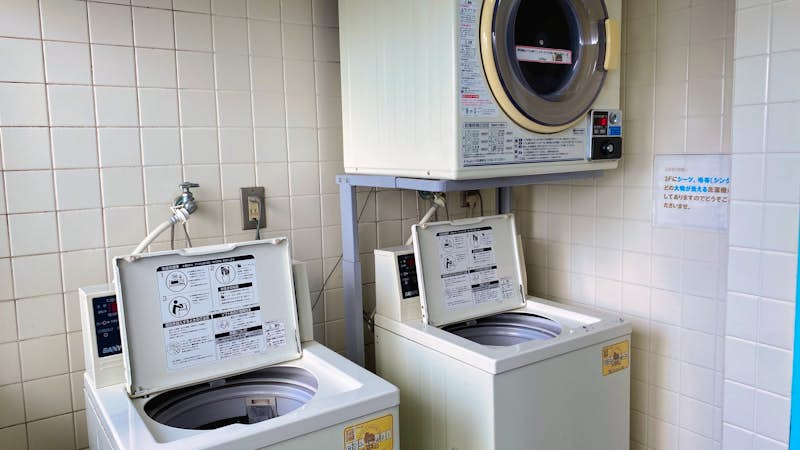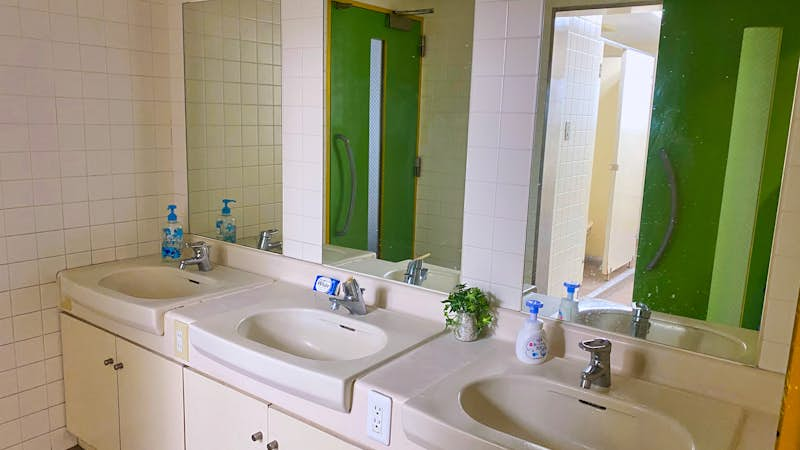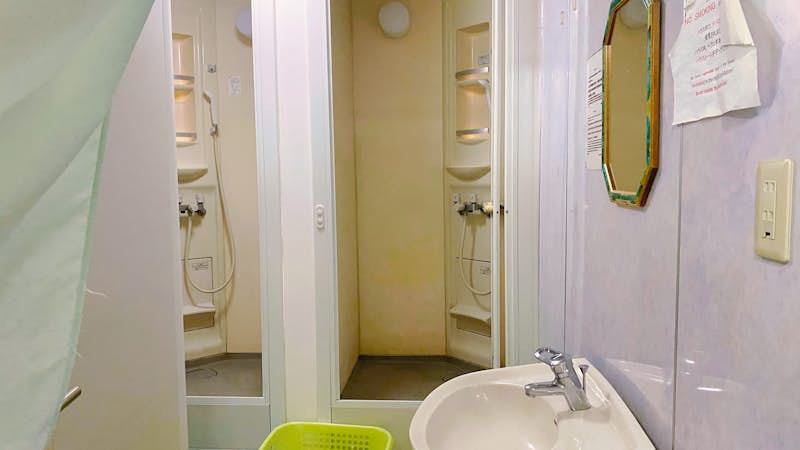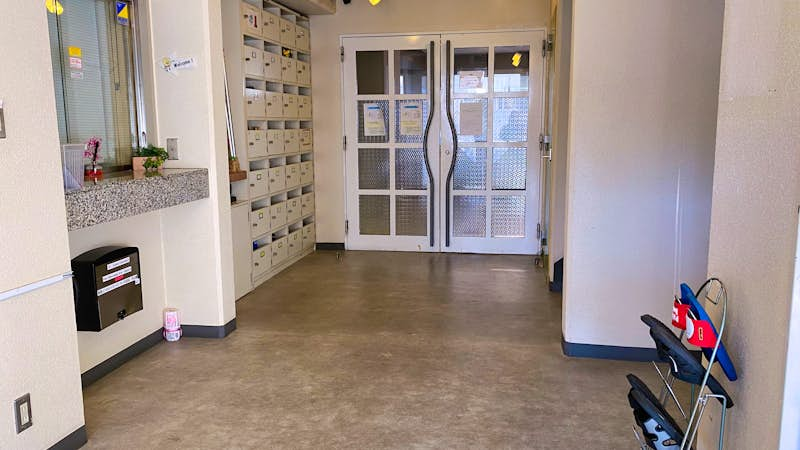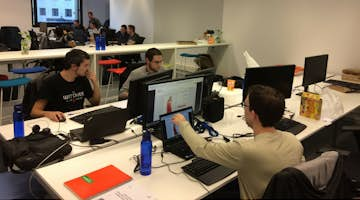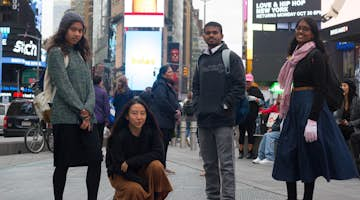
Business Development Internships: Intern abroad in Tokyo, Japan
Business Development internships in Tokyo offer unique cultural immersion opportunities and an amazing learning experience to develop skills, while building your confidence. Internship placements can be provided across a range of diverse industries and organizations. If you’re interested in culture, language, and broadening your professional horizons, come prepared to gain a new understanding of business practices in Tokyo!
What to expect from your Business Development internship:
- Learn diverse business approaches and strategies within Japanese corporate culture.
- Develop essential transferable skills, related to the dynamic field of business.
- Connect with experienced professionals who can help develop your real-world experience.
Your internship abroad host organization:
- Startups
- Software firms
- Sustainable food industry
- Import/Export companies
Internship details
Tokyo is a vibrant commercial and business hub, abuzz with entrepreneurial energy. It is a great destination for interns to build networks, immerse in a new culture, and develop business ideas with the support of a supervisor. Many startup companies in Japan have a global mindset, being oriented toward foreign markets and international sales. Interns have scope to explore tasks related to growth strategies, project development, market research, customer service, data analysis, report creation, content creation, coding, and more.
This is an in-country internship, with accommodation included. You can explore remote Business Administration & Start Ups internships, if you are looking for an internship program that you can undertake at home.
Business Development interns in Tokyo have excellent scope to develop cultural intelligence, communication skills, and administrative capabilities. An open mind and flexible nature is important, as internship tasks can be challenging and dynamic, depending on diverse business priorities.
Internship tasks may generally be related to business development research, client support, marketing and growth strategies, funding initiatives, and more. Individual internship experiences vary, as the specific placement that you’re assigned will depend on review of your resume and your current level of studies and experience. Therefore, if you’re at a more introductory level, you should reasonably expect a more introductory internship. Likewise, if you’re interning for a shorter duration, you will have a different experience from someone who is interning for a longer duration. Placement preferences are considered but always subject to availability.
Japanese language proficiency is not a requirement to join. However, interns should expect that a language barrier can still be encountered to a certain extent. Interns should be prepared for the very natural and normal frustration of not always understanding what is being said around them. Come prepared and willing to surmount a language barrier (and ask for help when needed), as opposed to being intimidated by it. We encourage all interns to take advantage of Japanese language lessons, which must be coordinated in advance, upon request.
In all cases, interns should expect that the first week of your experience will focus on settling in and gaining some introductory knowledge, as you will not “hit the ground running”. Rather, you should start with learning about the placement to gain an understanding of what you can build upon, develop, learn, and contribute. Ensure that you ask questions and provide feedback during the introductory period, so that your supervisor(s) understands how you’re progressing. This will help them to better understand important details, such as how quickly you learn, what you find challenging, what you find interesting, etc.
Typical Schedule
-
Approx. Monday through Friday, 8 hours. During the week, interns should expect to depart the accommodation at around 7am, to commute using the Tokyo metro. Lunch breaks are usually scheduled around 12:30 (where you would eat the “obento” that you bring or that you buy at a local “combini” or bento shop). Between 6-8pm, professionals typically decide to finish for the day and head home from the office. In Japanese culture, often the whole workplace team will decide to dine together. While interns might wish to join their colleagues for an evening meal, it is not expected to do so every day. (Often, the team member who ranks highest in the company’s hierarchy pays for dinner for the whole group).
What are the career benefits of interning abroad as a Business Development Intern?
Business Development interns learn from a qualified and experienced supervisor, and can be involved in:
-
Research, analysis, report creation and development to implement improved customer service strategies and outreach for business opportunities.
-
Data analysis and report creation to inform business decisions and development.
-
Assistance with addressing and developing business support strategies for English-speaking international customers.
-
Content creation and/or translations for digital media, newsletters, social media, etc.
Professional development opportunities:
-
Contribute creatively to business needs developed to support growth, impact and operational sustainability.
-
Develop cross-cultural competencies, learning how to communicate and collaborate with diverse cultures and working professionals.
-
Enhance professional soft skills, boosting confidence, initiative, resilience and adaptability.
-
Gain practical skills and boost your employability, with guidance from Intern Abroad HQ’s Experiential Learning Curriculum to support your learning and cultural intelligence.
Are you eligible for this internship?
Submit a free application so we can confirm your eligibility and check availability for your preferred dates.
Not sure which program to join?
Japan photo gallery

Academic credit available for all internships
Get course credit from your college or university while completing your internship abroad or a remote internship program. It's a great way to meet your academic requirements and gain valuable experience at the same time.
Learn about course creditProgram fees
Applying for our Business Development Internship is completely free! The support package covers the assistance we provide in finding your internship and arranging your living accommodations in your host country, ensuring you thrive during your program.
Please note that a deposit of US$499 is required to confirm your place. The remaining balance (minus your initial US$499 deposit) is due at least 60 days before your internship start date.
Duration |
Program Fee (USD) |
|---|---|
| 5 weeks | $2,459 Equivalent to $70 /day |
| 6 weeks | $2,569 Equivalent to $61 /day |
| 8 weeks | $2,774 Equivalent to $49 /day |
| 10 weeks | $3,269 Equivalent to $46 /day |
| 12 weeks | $3,479 Equivalent to $41 /day |
| 16 weeks | $4,219 Equivalent to $37 /day |
| 20 weeks | $4,959 Equivalent to $35 /day |
| 24 weeks | $5,649 Equivalent to $33 /day |
- Airport pick-up
- Accommodation
- 24/7 in-country support
- Program orientation
- Dedicated support before, during, and after your internship
- In-country guidance for social and tourist activities
- Sourcing and securing your internship placement
- Personalization of your internship plan
- Coaching from your supervisor
- Documented portfolio of your experiential learnings
- Academic credit facilitation
- International reference letter
- Certificate of Internship Completion
- All meals
- All in-country transportation
- Transfer back to the airport at the end of your internship program
- Visa (if required), flights, travel insurance (mandatory), vaccinations, criminal background check
- Personal spending money for snacks, drinks, public transport, laundry, and leisure activities during your free time.
Free-time experiences & tours in Tokyo
Take your internship to the next level with Intern Abroad HQ's affordable activity and tour add-ons in Tokyo! Explore your options below and learn how to book them once you've been accepted onto an internship program.

Learn some basic conversational Japanese when you’re in Tokyo.

Learning some basic conversational Japanese will help maximize the impact of your internship experience.

Shodo (or Japanese calligraphy) is deeply steeped in culture and evokes beauty with each brushstroke. Learn to create your own work of art with Japanese hiragana and kanji (Chinese characters).
Japanese language lessons
Japanese language ability is not a requirement for interns in Tokyo, however we encourage interns to take advantage of the opportunity to learn some basic skills, which can enhance enjoyment of being in Tokyo, while also increasing professional, social, and cultural competencies.
Japanese lessons are offered through our local team in Tokyo and can be arranged once internship participation has been confirmed. Interns who wish to study Japanese for the first time are recommended to take the Hiragana/Katakana or Conversation course. Interns with an existing foundation of Japanese understanding may wish to take a placement test and join a more intermediate class.
If you’re planning on taking beginner lessons prior to your internship, please note that there are set start dates for these classes, which typically begin at the beginning of each month. You should therefore consider your internship start date accordingly and ensure you have your schedule planned before you book flights.
Arrival and Orientation
Internships in Japan begin every Monday and interns may choose to spend a minimum of 5 weeks, up to a maximum of 12-24 weeks (depending on the temporary visitor visa conditions which are held by the intern). Exceptions to start date availability may occur when start dates are closed due to public holiday / festival disruptions or if the program has already reached capacity.
Airport pick up is included in the program fee, provided that interns arrive according to the following instructions:
- In order to receive this airport pick up, interns may fly into either the Tokyo International Airport (commonly known as Haneda International Airport - HND) or the Narita International Airport (also known as Tokyo Narita Airport - NRT).
- Interns are required to arrive on the Friday before their Monday start date, between 8am and 8pm.
- An extra charge applies to any airport pickups outside this timeframe. (If you arrive prior to 8am on the designated arrival date, then please wait until 8am for your pickup time).
- Upon arrival, interns will be met, greeted, and transferred by public transport (shuttle bus and/or train) to the accommodation.
There are no airport pick ups on any weekdays after 8pm or on weekends and public holidays. If you arrive outside the designated schedule, to receive an airport pick up, then you will need to make your own way to the accommodation. In this case, the team in Tokyo will send you instructions on how to reach the assigned accommodation and check-in.
Orientation typically takes place on the Monday and covers important details for your internship, including introductions, information about culture, customs, rules, expectations, safety, language lessons, cultural excursions, and more. Your specific internship placement orientation will follow the general orientation, as you’ll be shown how to travel to and from your internship and be introduced to the team you’ll be joining.
The last night of the accommodation is the Thursday night of the final week, leaving interns free to depart on Friday. You are responsible for organizing your own return transport to the airport, however our local team will be happy to assist with arrangements or provide guidance for taking the metro.
Interns are advised not to book flights until they have first registered to confirm their internship placement.
Check what's required to visit Japan
Check out the widget below to learn about the visa requirements for the Business Development internship in Japan, based on your country of residence.
Accommodation and WiFi
All interns in Tokyo are accommodated in dormitory rooms, within a sharehouse. Bedding is provided and guests have access to their own lockers within the rooms, for safe-keeping personal items.
Shared dormitory rooms typically accommodate between 4-8 guests at any given time and are often fully occupied. Bathrooms are shared and common areas such as lounge, kitchen and laundry facilities are available at the accommodation for interns to access (there is a small fee per use for laundry machines). The majority of residents are young adults, typically aged between 18 and mid 20s.
It is important to be aware that sometimes the dormitories may be mixed-gender but efforts are typically made to ensure that rooming arrangements are same-sex, whenever possible. For those who would prefer to stay in a twin-share room within the sharehouse (sharing with just one another guest, for more privacy) accommodation upgrades are available, at an additional cost. Please ask us about this in advance if you’re interested, as accommodation upgrades are subject to availability. Any requests to exclude the accommodation service from your internship experience, in order for you to make independent arrangements, must be discussed and confirmed in advance.
All interns are required to pay a fully refundable deposit upon arrival to the accommodation, at orientation/check- in. This is refunded to you upon check- out, provided that you have left your room and the house’s installations in proper conditions, as approved by local managers.
Due to the expanse of Tokyo, it’s normal to commute between the accommodation and internship placements. The normal commute time can be approx. 60–90 minutes, which is part of the normal daily life for many people living in the Tokyo metropolitan area. The commute may require changes of metro line, platform, or stations, and/or a combination of Japan Railways, metro lines, and buses. However, the system is efficient, precise and user-friendly, making it easy to get around and discover Tokyo.
Please note that the accommodation pictured in the photo gallery of this webpage is provided as an example. Since we may work with more than one sharehouse (depending on capacity), the exact room that you’re assigned may differ slightly from the example photos that you see. Rooms sizes, along with storage space, may also vary.
Meals
Internships in Tokyo do not include meals. Living at the shared house accommodation provides kitchen facilities where you are welcome to prepare your own meals and snacks. There are also dining options that work on a student budget, which are hearty and delicious. Smaller establishments (often counter-style) serve staples such as ramen noodles and yakitori (grilled chicken on skewers). A recommended budget of at least 2,000 Japanese yen per day (about US$20) is suggested for meals. Tap water in Japan is safe to drink.
Bear in mind that a recommended budget can vary significantly, as your personal spending habits and lifestyle choices are going to impact how much you spend. If you want to eat out all the time, this is going to cost you a lot more than accessing markets and being more conservative with your spending. In Tokyo, a typical fast food meal costs approx. US$5 and a coffee might set you back about US$3. A meal in a middle-class restaurant for two people costs on average US$40.
Essential country information
| Capital | Tokyo |
| Population | 127 million |
| Languages | Japanese |
| Currency | Japanese Yen (JPY) |
| Time zone | UTC+09:00 |
Weather and climate:
The climate of Japan varies from north to south, and west to east. Summers in Tokyo are short, warm, muggy and wet. This season typically lasts from late June through mid/late September. The warmest month of the summer season is usually in August, when the temperature averages 80°F (26°C).
The cooler months are from early December to late March. During the winter, the coldest month of the year is typically January, with an average temperature of 41°F (5°C).
Tokyo experiences rainfall year round but the summer months are typically wetter than the winter time. September is usually the wettest month, with December generally being the driest.
Cherry blossoms are the obvious draw to Tokyo in the springtime (early March through early June) - it’s also one of the most popular times to visit Japan, so it’s important to plan travel and book flights in advance. While the weather is mild in spring, there may still be the occasional hot or rainy day.
What recent Business Development interns said about their experience
I would say that my favorite part of my internship (because I did marketing for a tourism company) was getting to do a lot of research into what places people should go in Japan and then for me to take the opportunity to explore in Japan too. Just doing that research and to know more about Japanese culture - within an environment where my internship colleagues are supportive - was a highlight. Just learning more about Japan, going to visit the places I researched, and seeing that Japan is a beautiful, beautiful country!
My favorite part of the internship was getting to meet all the new people and making friends from around the world and I think that my time in Japan gave me to see things that I’ve never seen in the US before. I’ve learned how to think outside of the box in both my work and even in just walking around Tokyo.
My favorite part of the internship was meeting new people from all around the world and making new friends. My favorite part in Japan was learning how to use the transportation because it’s been fun! The most important thing I learned during my time would be time management skills, how to manage and balance a variety of things (like working from home, working in an office, and everything else in between!) During my free time, I visited temples, went biking around, went shopping, visited museums, art galleries, and lots of sightseeing!
It was a great experience with the people that I met, what I did in my internship and the skills I have gained and living a whole different life.
To read all reviews, visit our reviews page.
